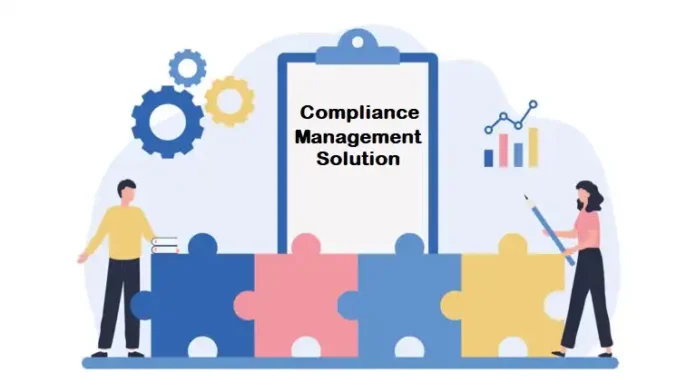Compliance Management is a critical function that systematically manages an organization’s compliance with legal obligations, industry standards, and internal policies. It encompasses the processes, policies, and procedures an organization implements to ensure adherence to these external and internal mandates. The core of compliance management is to minimize risk, prevent legal penalties, avoid financial losses, and maintain a company’s reputation and integrity.
Many compliance management solutions in the market offer varying features, functionalities, and levels of customization. Choosing the best compliance management solution requires a thoughtful approach that aligns with your organization’s specific needs, operational dynamics, and long-term strategic goals.
Here’s how you can navigate through the plethora of options to find the system that best fits your organization:
- Assess Your Compliance Needs
Start by understanding your specific compliance requirements. Different industries have distinct regulatory landscapes, so it’s crucial to identify the regulations, standards, and laws applicable to your business. For instance, a financial institution might need to comply with regulations related to financial reporting, anti-money laundering protocols, and consumer protection guidelines.
- Evaluate Functional Requirements
A robust compliance management solution should offer comprehensive features that address your unique needs. Key functionalities to look for include:
- Policy Management: Ability to create, distribute, and manage compliance policies and procedures.
- Risk Assessment: Tools for identifying, assessing, and mitigating risks.
- Compliance Tracking: Features for tracking regulatory changes and ensuring your practices remain compliant.
- Reporting and Analytics: Capabilities for generating compliance reports and insights for informed decision-making.
- Training and Support: Make a provision for staff training on compliance policies and access to support for resolving compliance-related issues.
- Consider Integration Capabilities
The chosen solution should seamlessly integrate with your existing systems (like ERP, CRM, etc.) to ensure smooth data flow and avoid operational silos. Integration facilitates a unified view of compliance data, making it easier to manage and analyze.
- Scalability and Flexibility
As your business grows, your compliance needs will evolve. A scalable compliance management solution can adapt to your growing needs, accommodating more users, data, and regulatory requirements without compromising performance.
- Check for Customization
Every business has unique processes and requirements. The ability to customize the solution to fit your specific workflow, reporting formats, and compliance procedures is crucial. A one-size-fits-all solution is often not sufficient to address all the nuanced needs of your organization.
- Prioritise User-Friendliness
The system should have an intuitive interface that’s easy for your team to use. Complex systems can lead to user resistance and errors. Ensuring that the software is user-friendly will encourage adoption and proper use among your staff.
- Assess Security Measures
Given the sensitive nature of compliance data, security is non-negotiable. Ensure that the solution provides robust security measures, including data encryption, access controls, and regular security audits.
- Review Vendor Reputation and Support
Partner with a vendor that has a strong reputation in the compliance management space. Check their track record, customer testimonials, and support services. Effective vendor support can significantly ease the implementation process and ensure any issues are promptly addressed.
- Consider the Total Cost of Ownership
While cost shouldn’t be the only deciding factor, it’s important to consider the total cost of ownership, including the purchase price and implementation costs, training, and ongoing maintenance. A cost-effective solution that meets your compliance needs can provide a significant return on investment.
- Conduct a Proof of Concept
Before finalizing the decision, request a demo with the shortlisted solutions. This allows you to evaluate the software in a real-world scenario, ensuring it meets your compliance, integration, and user experience requirements.
Choosing the right compliance management solution is pivotal for maintaining regulatory adherence, mitigating risks, and optimizing business operations. By carefully assessing your needs, evaluating the features, and considering the factors mentioned above, you can select a solution that ensures compliance and adds value to your business. Remember, the goal is to find a comprehensive, secure, and user-friendly system that aligns with your business objectives and scales with your growth.


